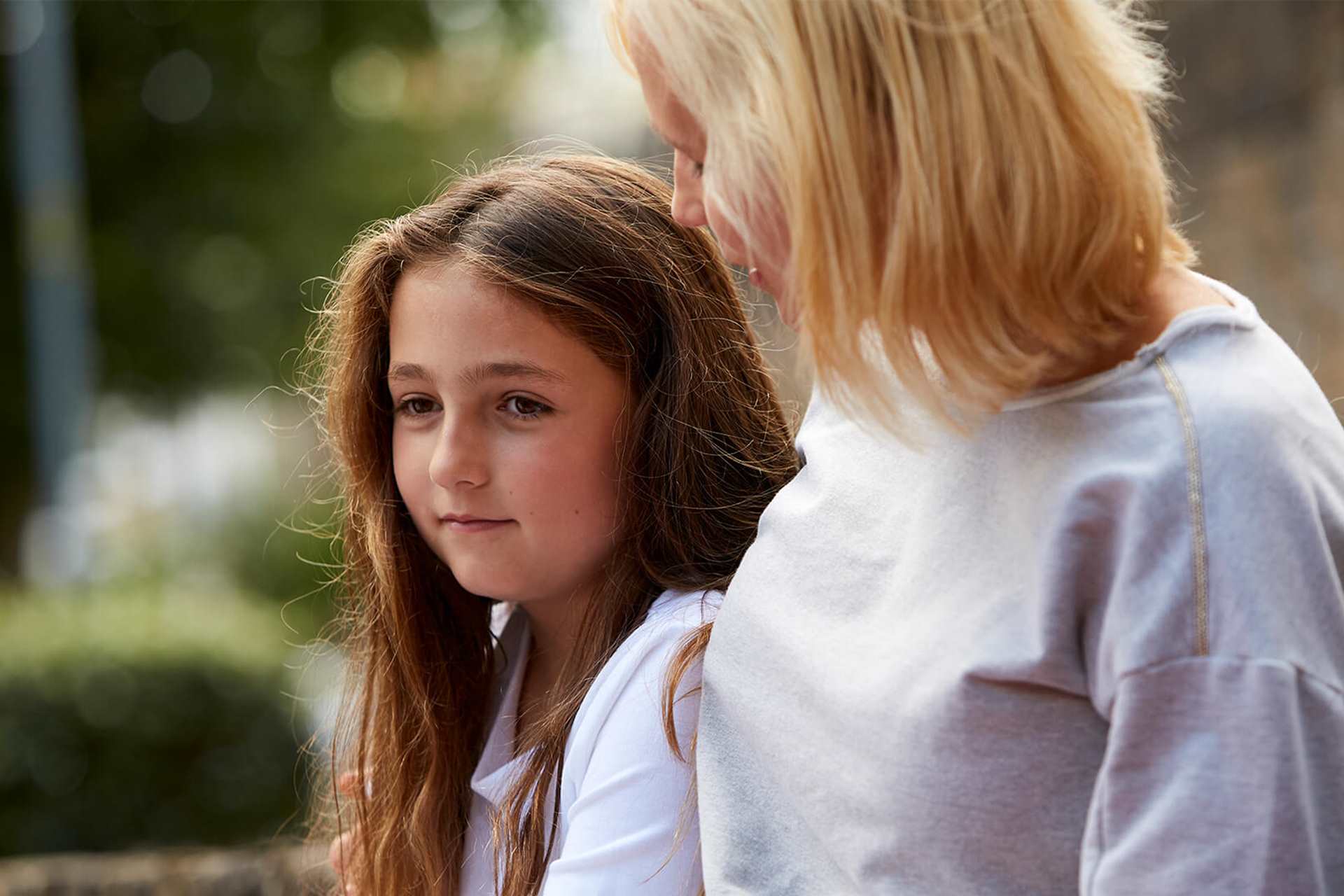
Topics mentioned: anxiety, school anxiety
About: Catherine discusses the difficult transition between primary and secondary school, and how it affected her son.
We had aways known that the transition to secondary school would be difficult for our son. As a family, we need to handle change very sensitively for it to be successful, and even the transition from one year to the next within the same primary school was tricky.
We visited all the local secondary schools and let him choose which ones he wanted. There was still a lot of anxiety around this but he felt in control, so we managed to compile a list he would be happy to attend. On decision day, he was offered a school that we hadn’t put on the list, and it felt like our lives fell apart.
We had visited this school and it was not appropriate – it would be unable to meet his needs, and he knew no one. He had been in the same primary his whole life and had some wonderful friends. But now, from his perspective, the safety net of his friends would be gone, he would not know anyone and, during the biggest transition of his life, he would be completely alone. This was when his mental health began to seriously deteriorate.

Attempts to get support
I tried everything I could to appeal to the school he wanted, recruiting the help of a solicitor and researching appeal documents as much as possible. I contacted my local MP and enlisted the help of his primary school to secure a place somewhere we hadn’t originally chosen, but where at least a few of his friends were going. The appeal process is not a kind one, and my own mental health suffered - I felt I was failing him at every turn, whilst he would have days upon days of throwing up because of his anxiety. For the first time, teachers saw meltdowns and panic attacks which had been a regular part of our son’s home life for many years, but which were now extending to school and getting worse.
Upon starting secondary school, my son began experiencing auditory and visual hallucinations. The auditory hallucinations would tell him to hurt himself and others, and the visual hallucinations would be very scary, with him sometimes cowering in the corner of his room afraid to lay on his bed because there was something there. My son is a very gentle boy, and he was terrified.
Up until now, I had felt able to support my son with his difficulties, but this was very new and frightening for the whole family. Luckily, my son was happy to see a GP, who referred him to CAMHS straight away. What I did find during this time is that this is an area of mental health that people do not want to discuss. When my son was experiencing anxiety and panic, people had related and had wanted to support us, but this was different. This was ‘weird’, and it made people feel uncomfortable.
I was determined to model openness and honesty about my son’s difficulties so that he would not feel ashamed or embarrassed, but this wasn’t easy. I uncovered a lot of stigma surrounding hallucinations, especially hearing voices. Often professionals would not discuss the hallucinations directly, instead referring to his ‘difficulties’ or ‘disturbances’. This was one of the worst parts of the whole experience for me, the avoidance of the problem, professionals being unwilling to engage with my son and an air of discomfort every time it was discussed.
This was when the YoungMinds Parent Helpline stepped in to help. Their webpage specifically mentioned ‘hearing voices’ and, when I contacted them, a qualified Child Psychotherapist was able to offer practical advice and suggest supportive techniques that we are still using now. Once I knew how to help and support my son, I did not feel as powerless and was able to work towards longer term solutions.

Moving forward
My son will be moving into Year 9 at school next year and is now settled and happy due to access to the right support services and a supportive and understanding SENCO. We were discharged from CAHMS after a year as it became obvious that the hallucinations had appeared due to an extremely stressful and tumultuous time, which was the opposite of what my son needed from his secondary school transition.
The sensory overwhelm, anxiety and panic are all still elements of our daily life, but he is on the waiting list for an autism assessment. We also have a variety of tools and support strategies at hand thanks to the YoungMinds Helpline and the professionals who were able to see past the stigma which is obviously still attached to hallucinations.
The auditory hallucinations will still make an appearance during stressful situations, so we know that they will be a recurring theme throughout his life. But we have strategies to address these now. He knows that they are just a part of how his brain works and how to ignore them.
Most of all though, he knows that they are nothing to be ashamed of and to keep talking about them - because ultimately that’s how they lose any power they might have had over him.
Read more blogs for parents and carers
-

-
 6 min read
6 min read -
 5 min read
5 min read
Useful helplines and websites
-
YoungMinds Parents Helpline
We support parents and carers who are concerned about their child or young person's mental health. Our Parents Helpline provides detailed advice and information, emotional support and signposting.
You can speak to us over the phone or chat to us online.
You can speak to us over webchat between 9.30am and 4pm from Monday-Friday. When we’re closed, you can still leave us a message in the chat. We’ll reply to you by email in 3-5 working days.
- Opening times:
- 9.30am-4pm, Monday-Friday
-
Parenting Mental Health
Digital support community and charity offering information, peer support, facilitated listening circles, mentoring and courses for parents of children with mental health difficulties.
Founder Suzanne Alderson’s book Never Let Go - How to Parent Your Child Through Mental Illness (Penguin, 2020) outlines how she supported her daughter to recovery after she became depressed and suicidal.
-
Anxiety UK
Provides information, support and advice for anyone struggling with anxiety. Please note that this organisation offers paid-for services, including therapy and an advice line.
- Opening times:
- 10.30am-4.30pm, Monday-Friday
Spread the word
